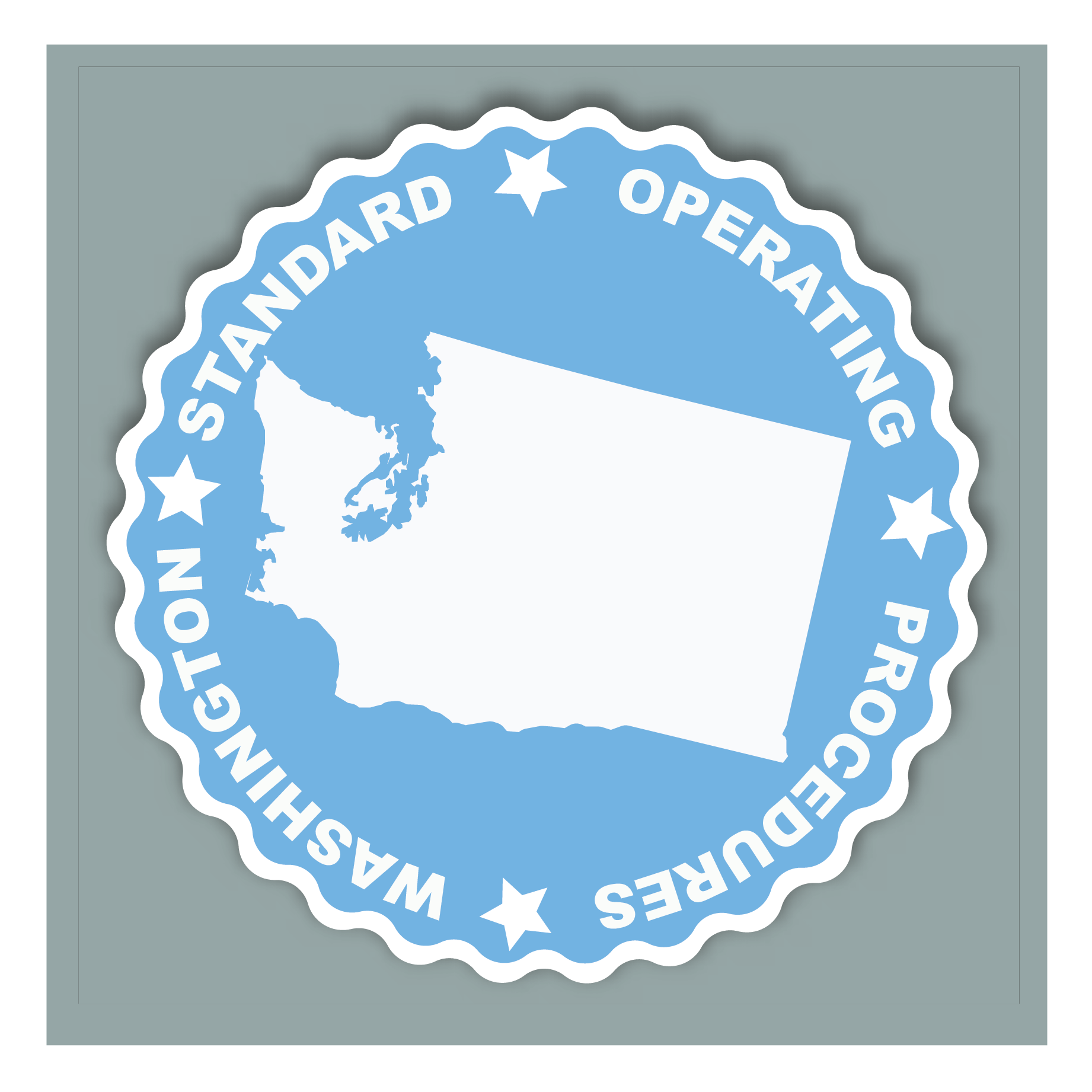Description
These Standard Operating Procedures are written specifically to address Washington Processing state rules and regulations for licensed cannabis businesses including but not limited to: Hiring Procedures, Transportation procedures, Inventory procedures, Labeling procedures, Non-laboratory quality control procedures, Security procedures, Waste Management procedures.
Control plan for persons under the age of 21
Security
Business records
Inventory tracking of all marijuana and marijuana product on the premises
Employee qualification and training
Health and safety standards
Transportation and delivery of marijuana and marijuana products
Signage and advertising
In 2012 Initiative 502: Established a comprehensive regulatory structure for the licensing and taxation of marijuana production & distribution (wholesale and retail sales), and authorized possession of marijuana for personal use (1 ounce or less) for persons age 21 and older. The initiative also dedicated a percentage of tax revenue for substance-abuse prevention, research, education, and healthcare.
In 2015 SB 5052: Merged the unregulated gray market of marijuana intended for medicinal use with the comprehensive regulatory system established by I-502, and requires licensed marijuana retailers to obtain a medical marijuana endorsement to sell medical-grade marijuana to qualifying patients and designated providers. The law also creates a voluntary patient database at the Washington Department of Health allowing patients to obtain a recognition card authorizing the possession of additional amounts of marijuana and exempting patients from paying retail sales tax. Finally, the law replaces unregulated collective gardens & dispensaries with small patient cooperatives which must be registered with the Liquor and Cannabis Board, beginning July 2016.
Medical Marijuana in WA
Washington has medical marijuana laws dating back to 1998. In 2011 SB 507 Established a regulatory system to license the production and distribution of marijuana intended for medicinal use. The law also created a voluntary patient registry in which qualifying patients and designated providers may enroll and receive protection from arrest and prosecution. Many portions of the bill were vetoed because of concerns regarding potential federal prosecution of state employees who would have been engaging in the activities necessary to license marijuana production and dispensing facilities. The authorization for patient home grows and collective gardens was not vetoed and that provision gave rise to the statewide expansion of an unregulated gray market, which eventually would need to be reconciled with the comprehensive regulatory structure created by voter approval of Initiative 502.
These SOPS for Cannabis Cultivators, Manufacturers and Retailers were written to help ensure best practices and compliance with Washington State Laws.
Preview the table of content for your downloadable SOP's for cannabis manufacturing below. Standard Operating Procedures_Manufacturing_General TOC





